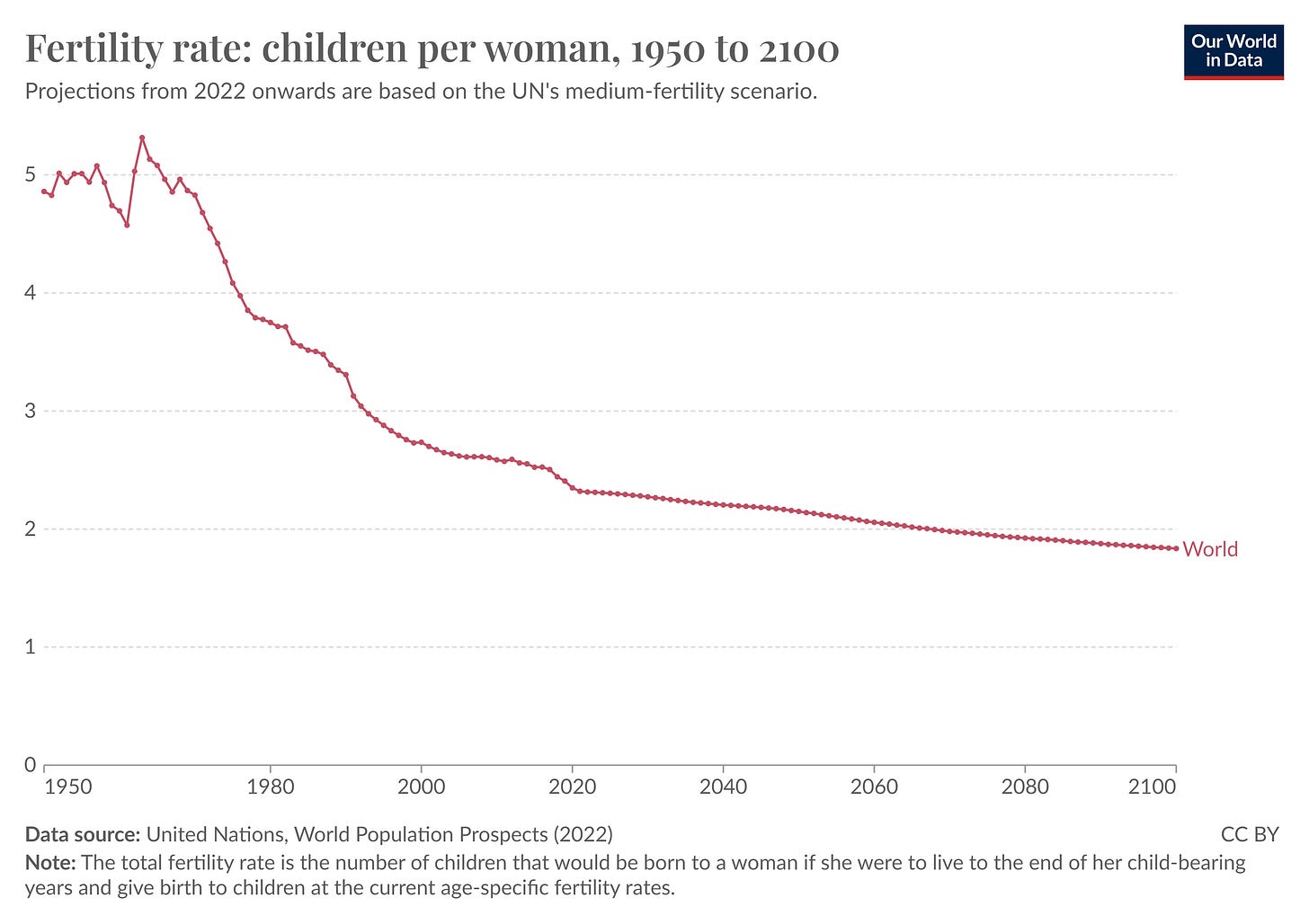QTRS May 23, 2024
Interesting content for the curious
Women sleep and stress
The Gallup report, Americans Sleeping Less, More Stressed: Women, particularly those under age 50, report sleeping less than they need and higher stress levels than men. (4/15/2024) shows that life seems to be getting worse for women. First, the percent of younger women, 18–49, saying they are getting enough sleep dropped from 42% in 2013 to 27% in 2023. There was only a 6-point drop for younger men to 46%. There were also roughly 20-point drops for older men and women, but younger women are still well below everyone else.
Stress has also increased for younger women, and they passed younger men around 2010 to be the leader in stress for the four groups.
Younger women who reported they were frequently experiencing stress in daily life rose from 46% in 2007 to 60% in 2017 to 69% in 2023. It would have been to have a measurement somewhere between 2007 and 2017, but this does seem to provide more evidence that social media has impacted younger women and not younger men. Either way, something is going wrong. Women are better educated then men, the pay gap has shrunk, and they have more freedom then ever, yet they seem worse off. Why?
Hydrogen is not an energy source
Robert Bryce has a good piece, The H Stands For Hype. The New York Times calls hydrogen a “renewable energy source” and other silliness about using an element that’s “a thermodynamic obscenity”, which you should read if you think we are going to see a hydrogen energy system in the future. If you want the short version, then what you need to know is that hydrogen isn’t an energy source; hydrogen has to be made. We tend to forget that oil, and fossil fuels in general, is really an amazing substance. Oil is an energy source that we extract from the ground, and with some refining, we get things like gasoline, which is very energy dense, easily used, and easy to transport. What about hydrogen? Here is what Bryce says:
As for Brick’s “thermodynamic obscenity” line, the numbers — which I’ll examine in a moment — are easy to understand. Hydrogen is insanely expensive, in energy terms, to manufacture. It takes about three units of energy, in the form of electricity, to produce two units of hydrogen energy. In other words, the hydrogen economy requires scads of electricity (a high quality form of energy) to make a tiny molecule that’s hard to handle, difficult to store, and expensive to use.
Among the biggest challenges in handling and storing the gas is the problem of “hydrogen embrittlement,” which can occur when metals are exposed to hydrogen. That means we can’t use existing gas pipelines or tanks to move and store the gas. As for using the gas, yes, it can be blended with natural gas and put into turbines or reciprocating engines. However, the best way to use it is in a fuel cell. And from where will those devices come? I’m old enough to collect Social Security. I’ve been reporting about the energy sector for nearly four decades, and yet, in all that time, I’ve seen precisely three fuel cells.
It is worth reading the whole post. Either way, you should ignore anything that refers to hydrogen as an energy source. Journalists, even at the “elite” NYT, need to take not just more math classes but more science classes too.
World fertility rate
I’ve known that the world fertility rate has been decreasing, but sometimes you need to see a good chart to help it sink in. Our World in Data has one.
The world fertility rate peaked in 1963 at 5.32 live births per woman. What I find interesting here is how steady the decline has been. The world is now down to a rate of 2.3, which is slightly above the replacement rate of 2.1. Given this decline, I’ll note that world population isn’t growing exponentially, and, in fact, it is predicted to start decline around 2080.
There are variations from country to country, but overall population growth is slowing and I’m not sure we know how to handle this economically since so much is dependent on growth.
Are young people reading this blog?
Ok, probably not, but they do seem to be getting the message that the trades are a viable career path, so much so that it is reported in the Guardian: Gen-Z students are choosing a trade over college. That shows they’re smart (5/19/2024), which is really just paraphrasing from a Wall Street Journal article. They do cite some numbers to back this up, but what I find interesting is the change in opinions.
Almost 10 years ago I sent my three kids to overpriced schools. And why? Because my ego is too big. I whined and grumbled about the high cost of tuition and I knew that the education they were receiving did little to prepare them for their real-world job responsibilities. But how could I tell my friends and neighbors in our middle-class suburban community that my children would be attending a – gasp! – community college or a technical school? Oh, the shame!
How many kids enroll in college as a result of parental pressure to spare them the embarrassment? This is changing.
“I’ll be honest, it took me a little bit mentally to get on board,” one mother, who studied drama and art history before obtaining an MBA (imagine what that cost!), said in the Wall Street Journal article. But she soon realized the benefits.
Tough times are ahead for higher education. They better figure out how to change, and fast, which they aren’t good at.
Guyana is an oil producer
From the eia (5/21/2024)
Guyana, situated on South America's northern coast neighboring Venezuela, Suriname, and Brazil, has emerged as a significant contributor to growth in the global supply of crude oil. Since starting production in 2019, Guyana has increased its crude oil production to 645,000 barrels per day (b/d) as of early 2024, all from the Stabroek block.
As long as a country has oil to produce they will and who could blame them. From my December 19, 2023 post, Some countries cannot afford to stop producing oil:
Oil Rent: “Oil rents are the difference between the value of crude oil production at regional prices and total costs of production.” Oil rent is given as a percent of a country’s GDP. The data is for 2021 and from the World Bank.
In 2021, Guyana’s oil rent was already 22%. Since then, oil production has roughly tripled. It makes economic sense for Guyana to extract oil. Until the world is willing to pay a country like Guyana to not extract the oil, then the world isn’t serious about climate change.
From the gardens
Native honeysuckle vine, calycanthus, columbine, and allium.




Electric cars are a menace
A few months ago, I wrote Child firearm deaths and other gun issues which was the second of two pieces in response to an opinion article by an academic basically making the argument that people that support Trump support guns and are hence terrible people because they support mass shootings. Now, if I were to think that way, I’d use the paper Pedestrian safety on the road to net zero: cross-sectional study of collisions with electric and hybrid-electric cars in Great Britain (5/21/2024) to say that those supporting electric vehicles are supporting the killing of innocent pedestrians. Why?
In Great Britain during 2013–2017, pedestrians were twice as likely to be hit by an electric or hybrid-electric car than by a petrol or diesel car; the risks were higher in urban areas.
In fact, in urban areas, it was 2.69 times more likely for an EV to hit a pedestrian than a gas car, and this was compared on a per-mile driven bases. In other words, they normalized properly.
Now, I don’t think that supporting EVs means supporting killing pedestrians. My point there was about rhetoric and really lazy, sloppy thinking. The main problem with EVs is that they are quiet. I expect there will need to be some education and awareness about EVs. Don’t be surprised, though, if the right uses this as an argument against EVs.
Hurricanes and oil
I don’t expect the EIA to report about hurricanes, but they do in Forecast strong hurricane season presents risk for U.S. oil and natural gas industry (5/22/2024) because they can have an impact on oil production, as seen in this chart of theirs.
Meteorologists are forecasting a particularly intense Atlantic hurricane season this year; they expect 20–25 named storms with a possibility of 30 or more, according to reports from AccuWeather in April. Colorado State University similarly forecasts an estimated 23 named storms this year.
Now you know that the prediction is for a bad hurricane year and how it might impact oil production. If you heat with oil, then maybe fill up your tank sooner rather than later.
The spinning CD
New Bon Jovi.
Please share and like
Please help me find readers by forwarding this article to your friends (and even those who aren't your friends), sharing this post on social media, and clicking like. If you're on Twitter, you can find me at BriefedByData. If you have any article ideas, feedback, or other views, please email me at briefedbydata@substack.com.
Thank you
In a crowded media market, it's hard to get people to read your work. I have a long way to go and I want to say thank you to everyone who has helped me find and attract subscribers.
Disagreeing and using comments
I'd rather know the truth and understand the world than always be right. I'm not writing to upset or antagonize anyone on purpose, though I guess that could happen. I welcome dissent and disagreement in the comments. We all should be forced to articulate our viewpoints and change our minds when we need to, but we should also know that we can respectfully disagree and move on. So, if you think something said is wrong or misrepresented, then please share your viewpoint in the comments.








